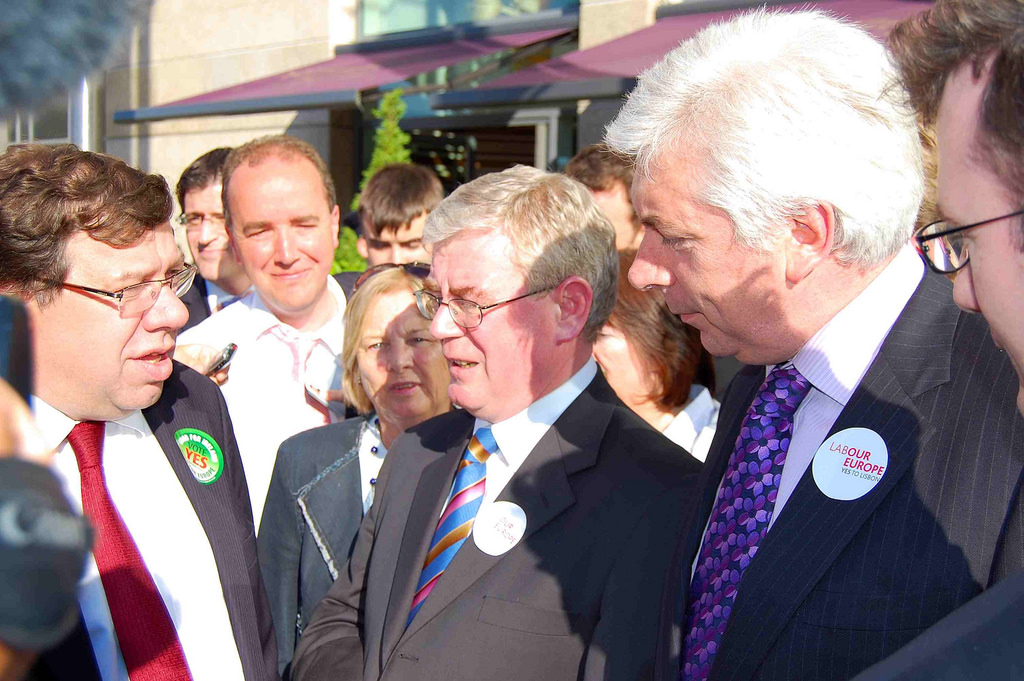Genuine accommodation of obvious concerns needed before ‘Lisbon 2’
 The Report of the Sub-Committee on Ireland’s Future in European Union provides and interesting and timely opportunity for us to revisit the issues we have previously discussed in the House. Like others, I do not want to repeat all the arguments in which we have engaged on the various occasions we have discussed the Lisbon treaty.
The Report of the Sub-Committee on Ireland’s Future in European Union provides and interesting and timely opportunity for us to revisit the issues we have previously discussed in the House. Like others, I do not want to repeat all the arguments in which we have engaged on the various occasions we have discussed the Lisbon treaty.
I welcome the report and congratulate Senator Pascal Donohoe on this extremely detailed and readable document. It begins by placing this debate and the moment we are at in true terms. We cannot shirk from those terms, as they point to a choice that must be made by the Irish that is of enormous importance. It cannot be shirked by people on either side of the argument. Those of us who supported the “Yes” vote did not do so on the basis that we would not have liked to change some elements of the treaty. Anybody engaged in a political activity knows that an international treaty involving 27 governments will require compromise and elements that are not liked.
Those of us who argued for a “Yes” vote now have a choice as to how and in what circumstances we might revisit the question. It is a difficult choice because we know and respect the decision of the Irish people, which is the right action. Is it being suggested that we let the issue go? Those on the “No” side also have a choice to make, as I have repeatedly heard people almost pleading that they are as European as the next person. They believe in a strong Europe with Ireland at its heart but they do not like the treaty.
It is incumbent on all of us, including those who argued and voted against the treaty, to come forward not just with repetition and a rehashing of those aspects of the treaty they do not like but to help us point the way. The people should advocate how we can ensure that we are at the heart of Europe in future, particularly through a method other than what I term ‘Lisbon Plus’. There should be some genuine accommodation of the obvious concerns that many Irish people have and had with the Lisbon treaty.
There are 26 other countries that propose to proceed on the substantial basis of what is in the Lisbon treaty. When this point was made before the referendum, it was referred to practically all the time as bullying. It is now a simple fact. There is a choice to be made. If the other 26 countries take the view that they are not prepared to slow progress to the pace Ireland might advocate following our decision in June, what can we say? We should be absolutely blunt. This is a choice between some form of real accommodation post-Lisbon treaty or, at a minimum, a semi-detached status for Ireland in the European Union. If I am wrong and there is a third realistic option, I would like to hear what it is. I do not just mean a theoretical option that someone might advocate. The debate has been put in true terms by the sub-committee. It is no exaggeration for it to say, as it does in its report in paragraph 4 on page 3:
Ireland’s standing and influence in the European Union have diminished following the people’s decision not to ratify the Lisbon Treaty. In immediate terms, this inhibits Ireland’s ability to promote and defend its national interests at a European level. This is likely to affect Ireland’s ability to influence key upcoming policy discussions within the Union. These include, but are not limited to, the development of the EU’s climate change package [by which we mean the future of the planet and our ability to influence it through being involved in discussions]; the negotiations on the future shape of the EU budget beyond 2013 including provision of adequate resources for the Common Agricultural Policy; and responses to the global financial crisis.

 I disagree profoundly with the position of the
I disagree profoundly with the position of the 
 There has been a sideshow skirmish revolving around the question of who is doing more in terms of the Lisbon treaty debate. I appeal to all sides of this House and elsewhere to move on from this nonsensical sideshow.
There has been a sideshow skirmish revolving around the question of who is doing more in terms of the Lisbon treaty debate. I appeal to all sides of this House and elsewhere to move on from this nonsensical sideshow.